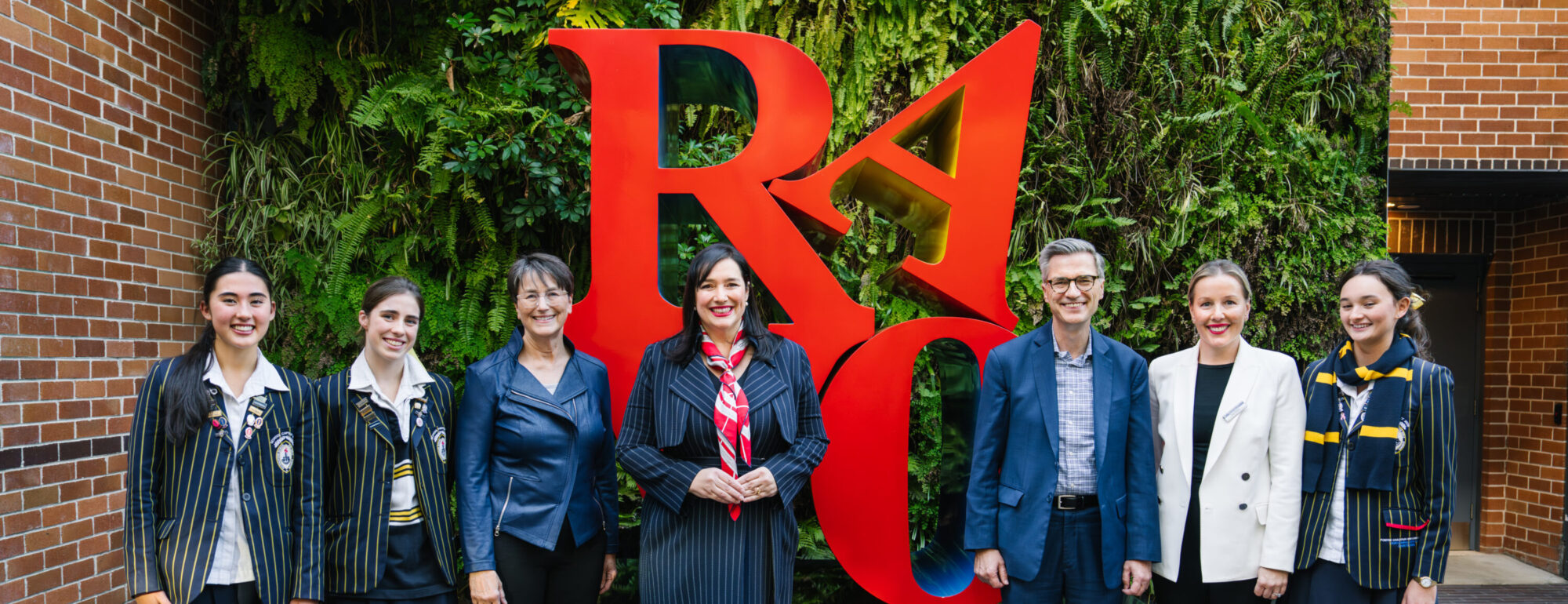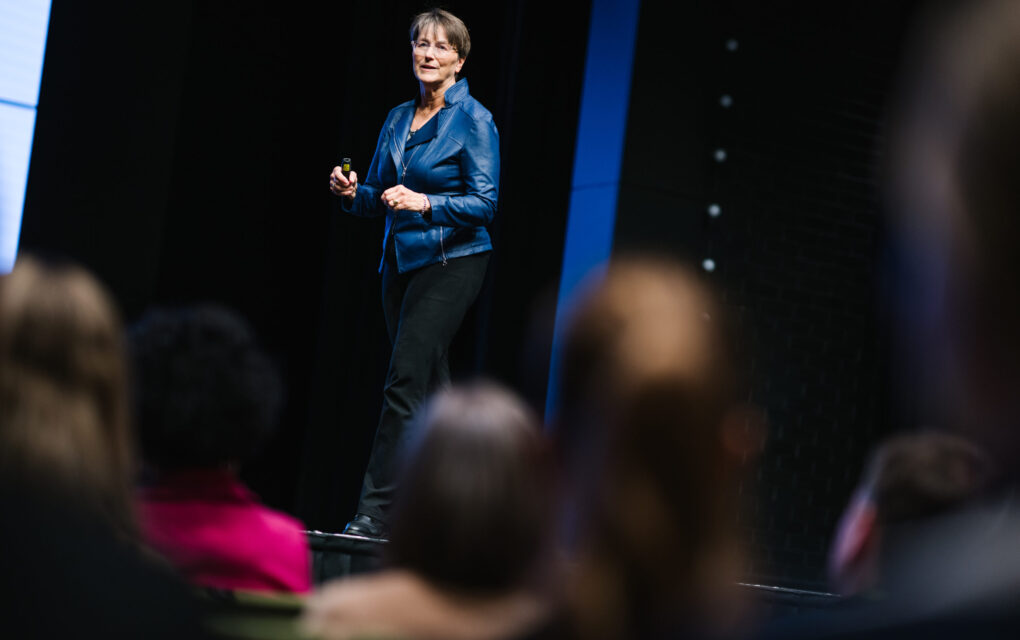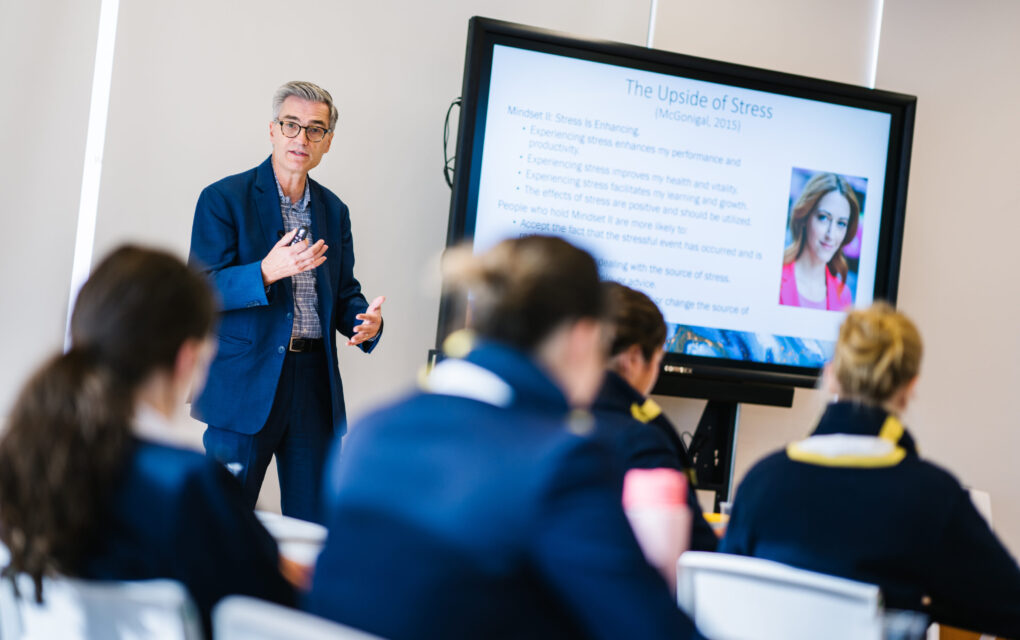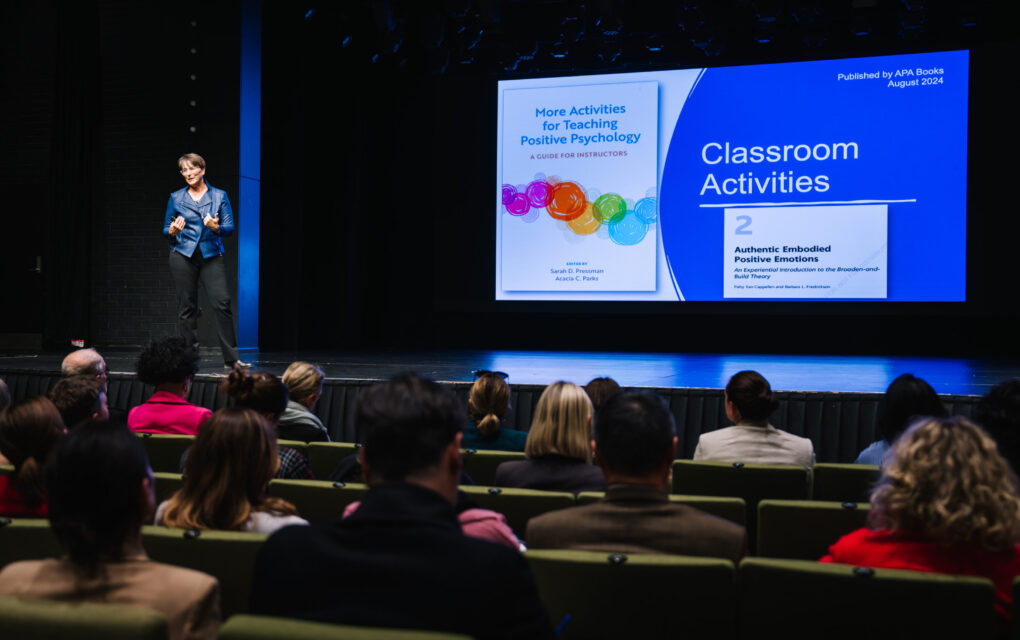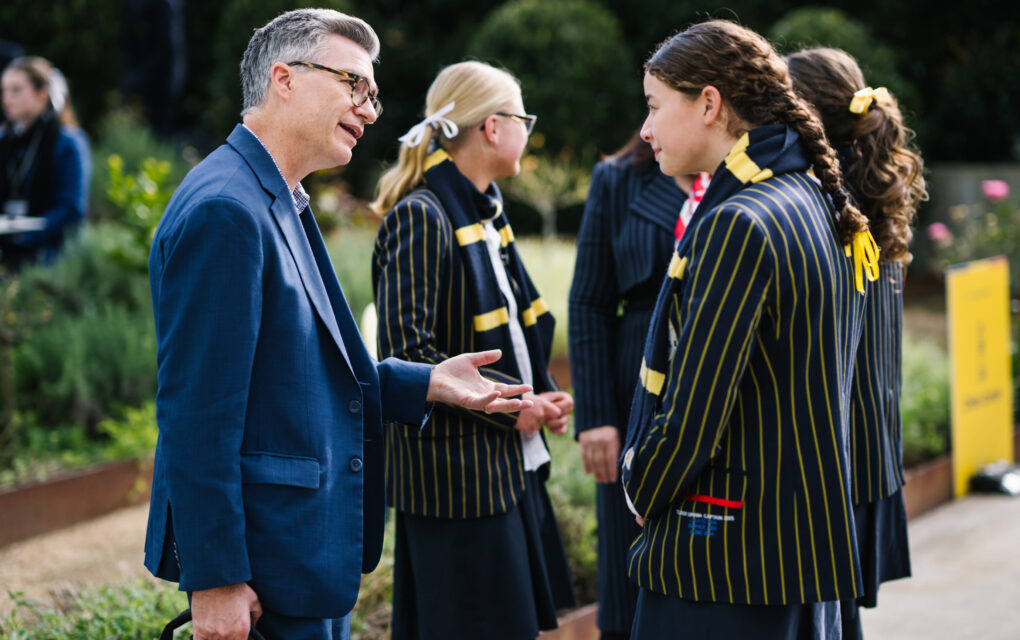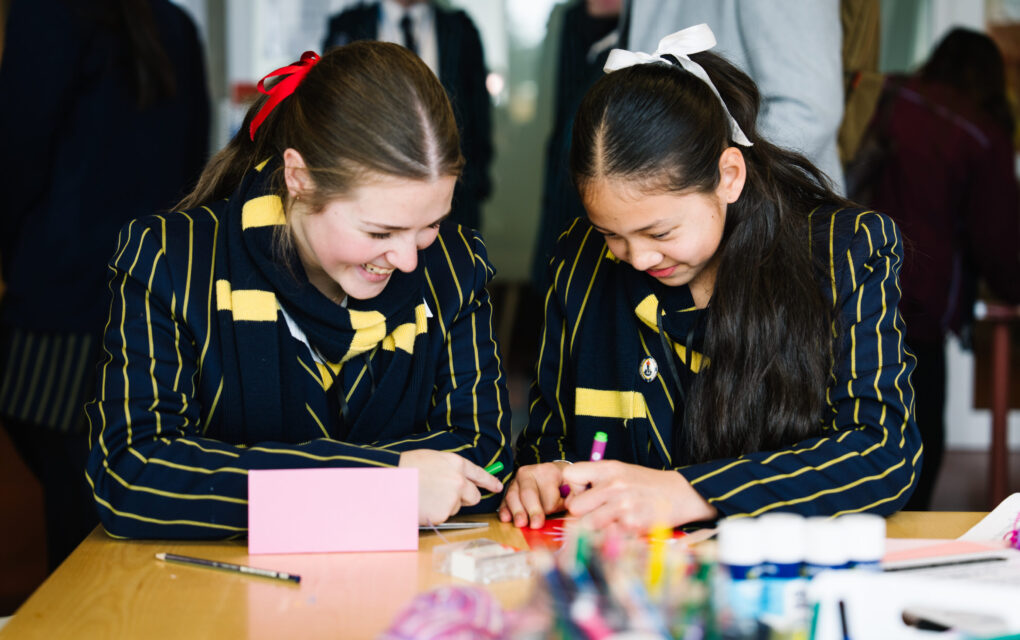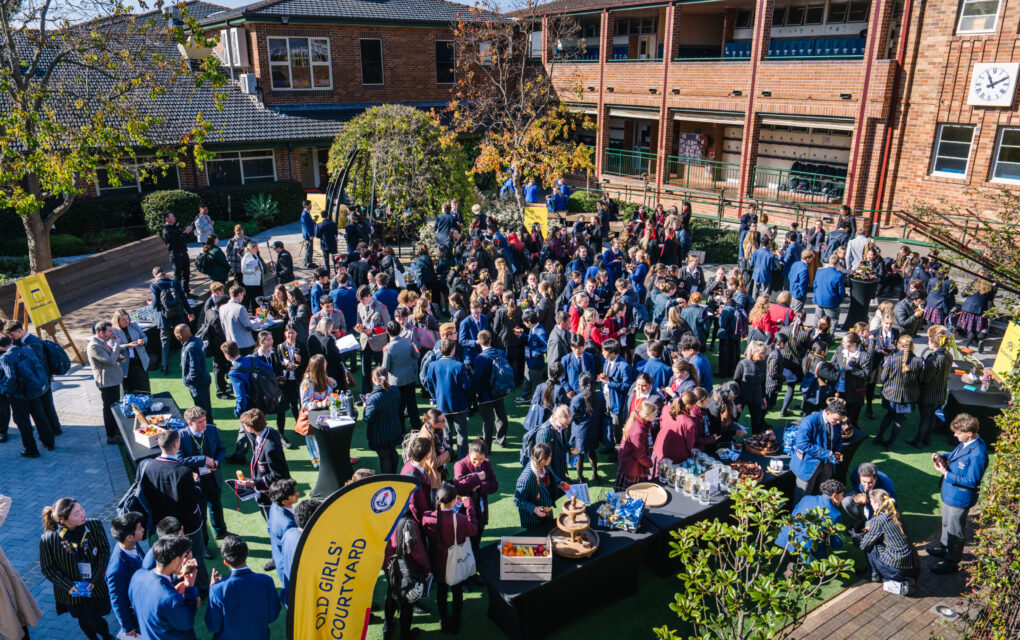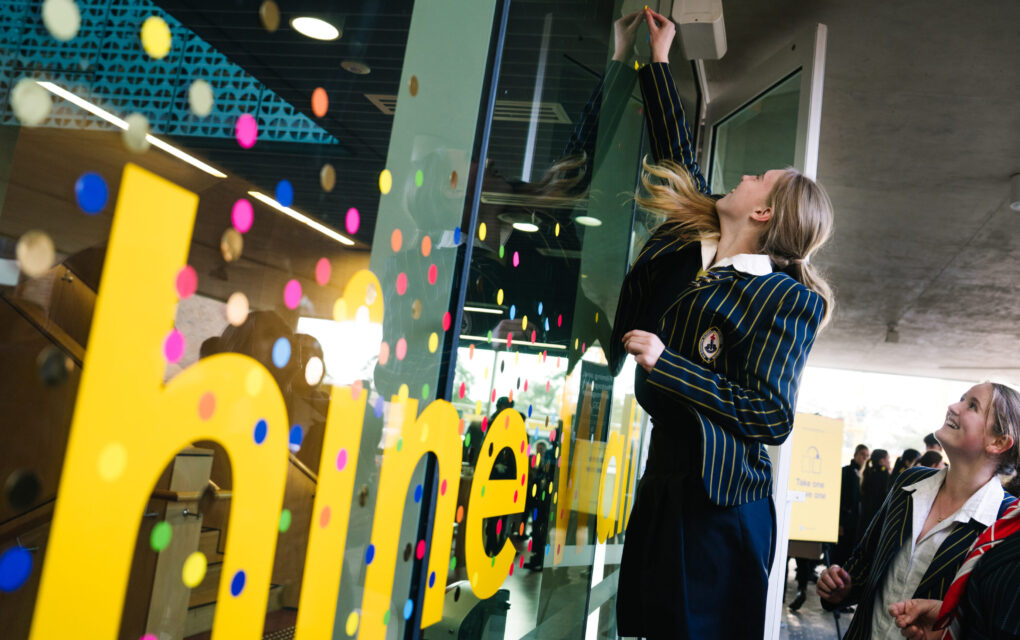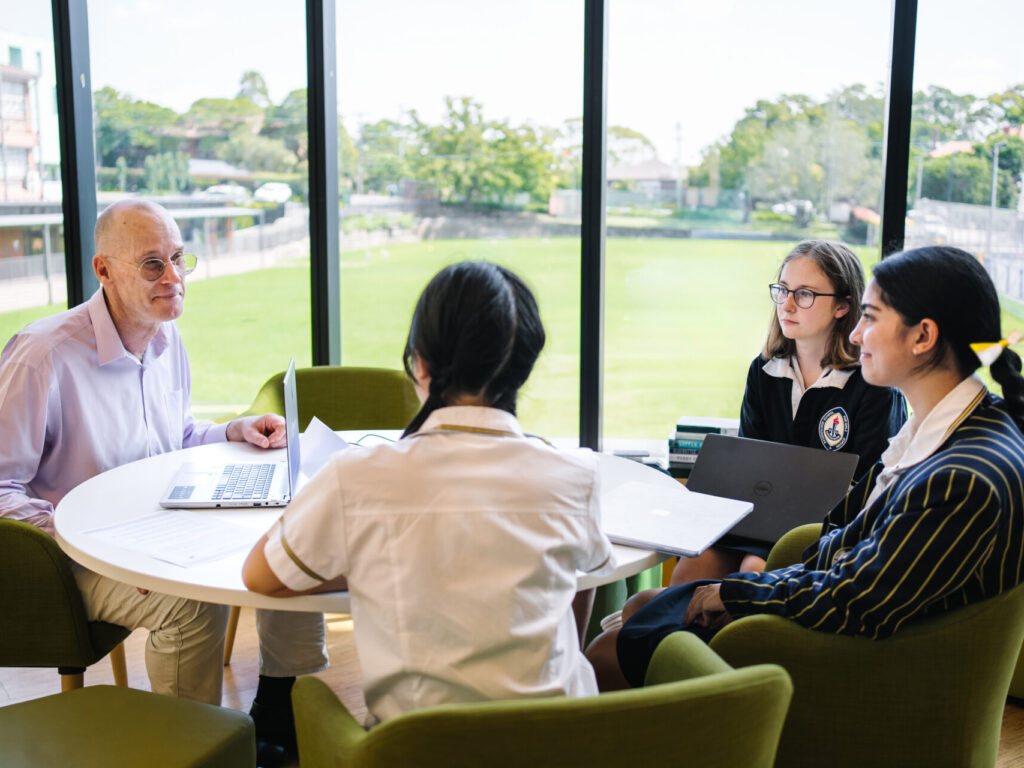In June, Ravenswood was honoured to host one of the world’s most highly cited psychologists, Professor Barbara Fredrickson, Kenan Distinguished Professor of Psychology and Neuroscience at the University of North Carolina, as well as Professor James O. Pawelski, the Professor of Practice and Director of Education in the Positive Psychology Center at the University of Pennsylvania.
Professor Fredrickson and Professor Pawelski visited the School during the final week of Term 2, through their relationship with Ravenswood Principal, Dr Anne Johnstone, who is Chair of the International Positive Education Network (IPEN) and a graduate of the Master of Applied Positive Psychology (MAPP) program at the University of Pennsylvania.
‘Hosting Professor Fredrickson and Professor Pawelski at Ravenswood for an uplifting Community Forum was a rare privilege for our community,’ Dr Johnstone said. ‘It gave me enormous pleasure to see them interacting with our students and staff across the week, answering questions and giving advice.’
Professor Fredrickson has published more than 160 scholarly papers and has received numerous awards for her research and university teaching, and her books, Positivity and Love 2.0, which continue to be bestsellers around the world. In 2017, she was honoured with the Tang Prize, recognising exceptional career contributions to human wellbeing.
Professor Pawelski has published dozens of academic articles and five books, including as editor (with Louis Tay) of The Oxford Handbook of the Positive Humanities and the Humanities and Human Flourishing series with Oxford University Press. He served as the founding executive director of the International Positive Psychology Association, is a past president of the William James Society and is an ex-officio board member of IPEN.
Hundreds of parents, teachers, university academics, Alumni and community members from across the state attended the evening Community Forum, where Professor Fredrickson shared research on ‘positivity resonance’. She focused on recent research in the field that provides a vital foundation for translating scientific discoveries in positive psychology into effective practical interventions to increase positive connections, reduce loneliness and cultivate the greater good.
Professor Pawelski’s presentation highlighted recent findings of positive psychology researchers on what can help us sail through life. He unpacked the new field of the positive humanities, which studies how arts and culture can support our individual and collective wellbeing – even when we are moving through choppy waters.
The audience enjoyed an engaging Q&A, with Ravenswood students joining the visiting psychologists and Dr Johnstone to discuss skills to increase resilience and student wellbeing, as well as positive psychology insights including positive emotion and engagement, toolkits and strategies.
Professor Pawelski also addressed Senior School students at Assembly on ‘What Can Superheroes Teach Us About Flourishing?’ and met and chaired an inspirational colloquium and lengthy roundtable discussion session with the Student Representative Council and the School Captains and Prefects. Together, they explored a range of issues and ideas around the topic ‘Stress and Growth: The Power of Stretch and Play for Emerging Leaders’.
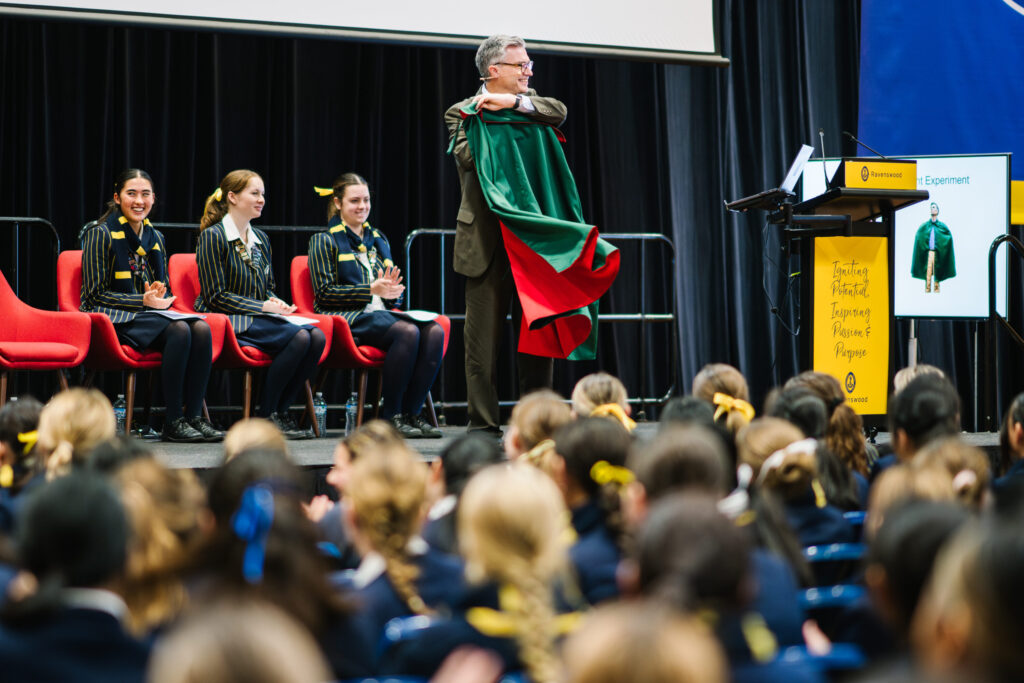
In addition, Professor Pawelski addressed Ravenswood staff on the latest research and theories about the ‘Science of Wellbeing and the Culture of Human Flourishing: Perspectives for Educators’, as well as ‘The Positive Humanities: Education for Human Flourishing’.
During their three-day visit, Professor Pawelski and Professor Fredrickson attended the Ravenswood and Knox Grammar Student-Led Wellbeing Conference, with Professor Fredrickson speaking to educators about the implications for Wellbeing and Classroom Cultures. She focused on her Broaden and Build Theory of positive emotions and the Positivity Resonance Theory of co-experienced positive emotions, providing staff from Ravenswood and across NSW with insights to how evidence inspires action by showcasing that positive emotions have lasting consequences for individual and collective wellbeing.

